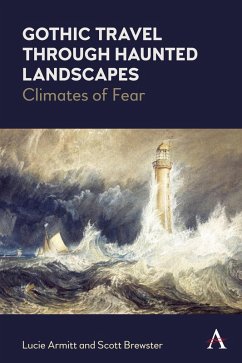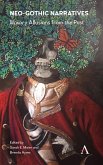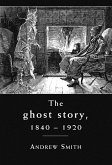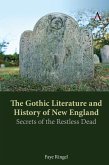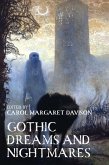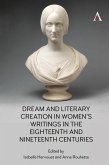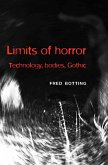Gothic has often articulated fear as much through its depictions of weather, climate and landscape as it has through its typical monsters, and the relationship between geography, the environment and travel has been a persistent characteristic of the Gothic from its earliest moments. Gothic is an innately travelling mode of writing, and the literary fascination provoked by armchair travel is central to the navigation of cultural fears: 'strangeness' only becomes apparent once one exchanges the homely (Heimlich) for the uncanny in new or uncharted settings. This book will argue that what differentiates Gothic travel from all other kinds is the growing realisation that the terrain across which one journeys has become 'haunted' by what one finds there. At the same time, that encounter similarly transforms the traveller 'for good': whatever ghosts we encounter abroad follow us home and take root in our collective consciousness. This book therefore argues that Gothic literary travel plays a key role in giving expression to a range of very 'real' haunting anxieties. The strange and discomforting landscapes into which our reading propels us allow those anxieties to take form while, in turn, our experience of journeying through these landscapes enables us, in part, to confront the fears they provoke.
This book argues that the process and experience of travel in Gothic literature provides a unique perspective on recurring cultural preoccupations from the late-eighteenth century onward, ranging from concerns about climate change or the presence of the unseen to the negotiation of cultural difference and the apprehensions produced by various modes of modern transport. The book follows travellers who take many fictional forms - tourists, commuters, walkers, explorers, as well as the 'armchair' tourist or reader - as they encounter fascinating, curious and often disquieting weathers, climates, landscapes and topographies. Gothic travel epitomises the wonder, excitement, suspicion or incomprehension that arises from journeys through familiar and unfamiliar terrain. While exposure to the wild, elemental or primitive could produce the elevation of the sublime in early Gothic, increasingly the experience of travel raised unsettling questions about people and environments that lay beyond established frames of knowledge. Gothic travellers are haunted, never alone, and the experience of journeying through these landscapes provokes fears that may shadow them even after they have returned to home ground.
One of the reasons why Gothic literature remains as popular in the twentieth and twenty-first centuries as it has ever been, despite our lessening belief in the supernatural or the after-life, is because it continues to provide us with a mechanism for giving shape to otherwise formless but profound cultural concerns. The book questions, however, whether Gothic literature per se remains a source of fear (as it arguably was in its earliest phases), or whether it now provides a 'homeopathic' response to growing social, cultural and environmental anxieties which loom large in our consciousness. It tracks the ways in which Gothic literature, from the later eighteenth century to the present, has always propelled fictional travellers abroad into cultural landscapes which prove terrifying and unknowable, but also questions whether more recent literary portrayals ask different questions of their readers in relation to the environment, surveillance, (im)migration, the foreign and technological innovation, as viewed through the lens of travel. As this study will show, these expressions of fear speak loudly to our own time, and are manifested not only in contemporary Gothic literature but in the wider cultural discourse.
This book argues that the process and experience of travel in Gothic literature provides a unique perspective on recurring cultural preoccupations from the late-eighteenth century onward, ranging from concerns about climate change or the presence of the unseen to the negotiation of cultural difference and the apprehensions produced by various modes of modern transport. The book follows travellers who take many fictional forms - tourists, commuters, walkers, explorers, as well as the 'armchair' tourist or reader - as they encounter fascinating, curious and often disquieting weathers, climates, landscapes and topographies. Gothic travel epitomises the wonder, excitement, suspicion or incomprehension that arises from journeys through familiar and unfamiliar terrain. While exposure to the wild, elemental or primitive could produce the elevation of the sublime in early Gothic, increasingly the experience of travel raised unsettling questions about people and environments that lay beyond established frames of knowledge. Gothic travellers are haunted, never alone, and the experience of journeying through these landscapes provokes fears that may shadow them even after they have returned to home ground.
One of the reasons why Gothic literature remains as popular in the twentieth and twenty-first centuries as it has ever been, despite our lessening belief in the supernatural or the after-life, is because it continues to provide us with a mechanism for giving shape to otherwise formless but profound cultural concerns. The book questions, however, whether Gothic literature per se remains a source of fear (as it arguably was in its earliest phases), or whether it now provides a 'homeopathic' response to growing social, cultural and environmental anxieties which loom large in our consciousness. It tracks the ways in which Gothic literature, from the later eighteenth century to the present, has always propelled fictional travellers abroad into cultural landscapes which prove terrifying and unknowable, but also questions whether more recent literary portrayals ask different questions of their readers in relation to the environment, surveillance, (im)migration, the foreign and technological innovation, as viewed through the lens of travel. As this study will show, these expressions of fear speak loudly to our own time, and are manifested not only in contemporary Gothic literature but in the wider cultural discourse.
Dieser Download kann aus rechtlichen Gründen nur mit Rechnungsadresse in A, D ausgeliefert werden.

